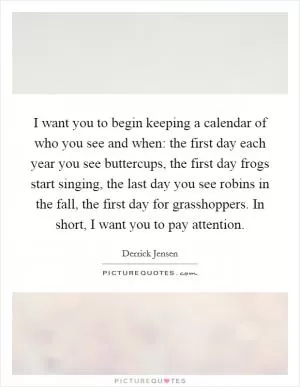Our lawns manifest our cultural desire: they are static, they are artificial, and they are kept sexually immature

Our lawns manifest our cultural desire: they are static, they are artificial, and they are kept sexually immature
In his book "The Culture of Lawns," environmentalist and author Derrick Jensen explores the cultural significance of lawns in modern society. He argues that our obsession with maintaining perfectly manicured lawns reflects deeper societal values and desires. Jensen suggests that lawns are a manifestation of our cultural desire for control, order, and conformity.Jensen points out that lawns are static in nature, requiring constant maintenance to keep them looking pristine. This need for control over our outdoor spaces mirrors our desire to control and manipulate the natural world. By meticulously grooming our lawns, we are asserting our dominance over nature and imposing our own standards of beauty and order.
Furthermore, Jensen argues that lawns are artificial constructs that serve as a symbol of our disconnect from the natural world. Instead of embracing the diversity and complexity of natural ecosystems, we prefer the simplicity and uniformity of a well-manicured lawn. This artificiality reflects our tendency to prioritize convenience and aesthetics over ecological health and sustainability.
Jensen also highlights the sexual immaturity of lawns as a reflection of our cultural values. By keeping our lawns trimmed short and free of weeds, we are essentially stunting their growth and development. This obsession with maintaining a sexually immature landscape speaks to our discomfort with the messiness and unpredictability of nature. We prefer our lawns to remain in a state of perpetual adolescence, devoid of the messiness and chaos of mature ecosystems.
Overall, Jensen's analysis of lawns as a cultural desire reveals the ways in which our obsession with control, artificiality, and sexual immaturity shapes our relationship with the natural world. By reevaluating our attitudes towards lawns, we can begin to challenge the underlying values and beliefs that drive our destructive relationship with the environment.












 Friendship Quotes
Friendship Quotes Love Quotes
Love Quotes Life Quotes
Life Quotes Funny Quotes
Funny Quotes Motivational Quotes
Motivational Quotes Inspirational Quotes
Inspirational Quotes